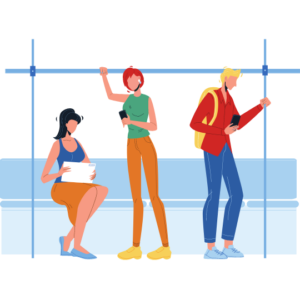A Stranger On A Train
A chance meeting on a railway journey unleashed a chain of events that changed Michelle’s life… and set her firmly on the right track…
 The man on the train didn’t look like a guardian angel.
The man on the train didn’t look like a guardian angel.
He looked as if he had just blown in from a tropical photo-shoot. He wore a safari jacket, combat pants and desert boots, and had a warm, peculiarly direct Italian gaze. And because he appeared well past sixty and showed no visible signs of madness, I briefly returned his smile when he took the seat opposite mine.
He didn’t speak English and I don’t speak Italian, so we struck up a desultory conversation in fractured French. Cheerfully he told me that as a young man he had been the `black lamb’ of the family, and had given up a job in his father’s business to become a photographer. You could tell from his face that the decision had been the right one. This was a man who smiled more often than he scowled.
Then he asked what I did for a living, and why he’d seen me wandering about Ravenna on my own.
`I’m a lawyer’, I said, `over here on a case. I stayed an extra day to look around.’ (I didn’t mention that this was my way of compensating for a string of all-nighters and missed weekends which had left me more than usually frazzled.)
A lawyer, he said, with a thoughtful nod. So you work hard?
I shrugged. Nothing unusual. Most people do.
That was when he did his guardian angel thing.
Lightly, and with no hint of `now listen to an old man’s advice’, he suggested that it isn’t good to work too hard if it doesn’t make you happy. `You’re young,’ he said –
Young? I thought. (I was thirty-six, but felt fifty.)
`- and life is wonderful,’ he went on calmly. `But it goes very quickly. It’s not worth making yourself unhappy about things you can change.’
To my horror, I felt my throat constrict and my eyes fill with tears. Unhappy? I hadn’t said anything about being unhappy.
So why did I want to put back my head and howl?
Mercifully at that point the train pulled into the station, and we shook hands, retrieved luggage, and (in my case) beat a hasty retreat. But as I was hailing a cab, the old man called out that if I ever returned to Ravenna, I should look him up for a cup of coffee. I could find him most weekends in the piazza, at a café, with his friends.
Then my cab moved off, and I never saw him again.
If this had been a film, I would have experienced an epiphany there and then. It’s all so simple! I’d have cried. I’ve been unhappy for years, I see that now! I’m going to chuck in the law and be a writer instead!
But I suppose life is messier than movies. It takes longer, too. Two years passed before I changed my life. Here’s how it happened.
I had become a lawyer almost by default. One rainy afternoon in my final year at university, I told myself in desperation that I had to do something, so how about law? After all, I’d always liked courtroom dramas. And I could hardly make a living by writing novels. (My spare-time efforts had only earned a small clutch of rejection letters.)
So I became a solicitor in the City. High pressure, of course. But I’d always been able to handle pressure.
As a solicitor, pressure meant 16-hour days and non-existent weekends. It meant a health-free diet of Chardonnay, Kit-Kats and crisps. Pressure meant headaches every day (a packet of Solpadeine a week), and a social life which – apart from a few wonderfully persistent friends – was soon replaced by wall-to-wall Star Trek videos, and celluloid love affairs. (Harrison Ford and Gary Cooper are so much easier to deal with than the real thing.)
After five years, I was made a partner. I was a success. Therefore I must be happy. I was certainly earning enough, although I didn’t have time to spend it – except for the occasional holiday, when I’d hire a house all to myself on a remote Greek island, sleep seventeen hours at a stretch, and spend the rest of the week with a stack of Dick Francises and a bottle of Scotch.
The irony is, I never even wanted a `glittering career’. Never set out to prove myself in a man’s world. I simply wanted to earn a living in an interesting job. It was the lunatic City work-ethic and my own addiction to approval which did the rest.
You’re fine, I kept telling myself. When this case is over, work will slow down, and you can tackle your novel. After this case, things will ease up.
Oh okay, maybe after the next one.
Alright, this year’s a bit of a bottleneck. But next year, things will definitely ease up.
Of course it never happened. Things just went on as they were. For years.
At this point you may be wondering why on earth the stupid woman didn’t come to her senses and do something, if her life was such a grind? And you’d be right. All I can say is that I was simply too tired to see straight.
But at times, something did slip past my defences. I would feel a heaviness in my chest, like a knot pulled tight. If I’d stopped to think, perhaps I would have recognised that as unhappiness. But I never did. Not until a series of signposts started cropping up in my life, all pointing the same way.
By far the biggest and most horrible of these was my father’s death from cancer. It was diagnosed a few months after he retired, and took five years to kill him. Heartbreaking to see him in constant pain, just when he should have been enjoying himself after a lifetime’s hard work. But right till the end he kept his sense of humour, was never bitter, and once told me that he had no regrets about his life.
No regrets. I thought about that after he died. And one day it occurred to me that if I stepped under a bus tomorrow, I’d have nothing but regrets. About all the things I hadn’t done.
Then the following summer I went to Italy and met a stranger on a train, who told me that life is short. Another signpost.
Suddenly they were coming thick and fast – so fast that even I couldn’t miss them. First the headaches grew more frequent, sometimes blazing into vertigo attacks. Then the knot in my chest became a constant companion. Finally one night I found myself sitting on the kitchen floor, crying uncontrollably.
I could no longer ignore the wake-up call. I had a recurring image of a giant Pythonesque cartoon hand pointing down at me from a cloud and booming, Hello? Are we getting through to you?
The message was stark. I was ruining my health doing a job I no longer enjoyed, to earn money I’d never have time to spend, while putting off what I really wanted to do until some future time which was never going to come. And the only person who could change any of this was me.
So what happened next? Did I chuck in the law and go and live on a hilltop in Tuscany?
I’m afraid not. I was too muddled for that. Instead I went for the classic lawyer’s compromise, and negotiated a sabbatical. I travelled, got enough sleep, and finally finished the manuscript I’d been nursing for years.
Then, like an idiot, I went back to work.
I knew it was a mistake as soon as I walked in the door, because my first case was all about cancer. A handy reminder of mortality, as if I needed one. But in a way it was fortunate, for it left no room for self-deception. Shortly afterwards, I sent my manuscript to the one person in publishing whom I’d actually met, and who had once said encouraging things about my work.
Then I took a deep breath, and resigned. And bit my nails. And wondered what I was going to live on if I never got published. At least, I told myself, you haven’t got a husband and children to worry about. So it’ll only be you starving in the garret.
The day the publishers got back to me, I was in a meeting, mentally checking my plans to economize. Cancel all pension payments. Sell all unnecessary possessions. Exchange flat and mortgage for something half the size. Then my secretary sidled in and gave me the prearranged signal.
When the publishers told me they wanted to buy the book, I spilt coffee all over my desk. But I think I managed to say `thank you’ in a fairly grown-up voice, before prancing into my assistant’s office and whooping like a ten-year-old.
That was two years ago. What can I say about my new life? No more daily headaches. No more late-night crying jags. I earn a fraction of what I used to, and have ten zillion times more fun. And if that sounds smug, I’m sorry, but it’s true. I’ve swapped Armani for M&S, and Quaglino’s for Pizza Express, and I couldn’t care less. Because my friends are still my friends, and I like what I’m doing. There’s no nagging feeling of `some day, you can do what you really want’. The knot is gone.
Of course I have bad days, when I sit for hours over a blank sheet of paper, and novel-writing seems about as enticing as unblocking the sink. But I can honestly say that I have never, not for one moment, ever, missed my old life.
Please don’t think I’m suggesting that everyone who works hard is a mug, and should ditch what they’re doing to get in touch with their karma. I’m just saying that I was a mug. Because it took me far too long to realise that life is short, and I was wasting mine doing something I no longer enjoyed. I’m only thankful that the signposts got through to me before it was too late.
And perhaps some day I’ll return to Ravenna, and see if I can find that stranger from the train, and tell him about it over a cup of coffee.
